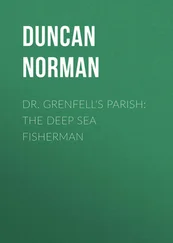She smiled that sweet half-smile from the day before and she said, “It was my civic duty.”
“Have you warned many men about the dogs of Saigon?”
This stopped her. It seemed to me that she was having the same trouble I’d just had in answering. After a moment she said, simply, “No.”
“Why is that?” I asked. “There are many men in Saigon who could be in peril.”
“No one else calls to the dogs like they are worth loving.”
“So there were reasons for both of us.”
“Yes.”
I was stuck now. I shuffled around and tried to think of something to suggest. “I’d like to take you somewhere. For noodles, maybe. I know a great place.” I gestured at the shop behind me.
She laughed briefly, softly, at this, but then her face went suddenly serious. She said, “It is not so easy.”
“Because you don’t know my name. I’m Benjamin Cole. The short name is Ben.”
“I am Le Thi Tien. My given name is Tien.” She held out her hand and I took it and she had a firm grip and we shook and let our hands go and I thought we both were happy to have touched in this clear and strong way. Then she said, “But that does not fix the difficult thing. My work for Saigontourist means I should not fraternize in public with someone who looks like a guest of our country.”
“Then let me hire you.” These words were out of my mouth before I could think about them.

He looked very concerned suddenly and I was sure it was because of the words he spoke, though I had not heard them at first in the way he feared. And that was an interesting thing. In the next moment, when I thought of him liking me and then hiring me and I finally saw what he was feeling bad about, I still was not hurt. I was not my mother. He was not a GI. Though he was American. Obviously so. And I had my own concern now. I wanted to do this in the way he had first imagined. I wanted to sit in a noodle shop with him in my softest silk dress, with my throat naked and my knees bared, I wanted to speak with him and watch his gentleness reach out to the ragged dogs that went by. This desire surprised me, and it seemed an impossible thing.
But there was this offer. I said, “I could take you on a tour of the city tomorrow.”
“Good,” he said. “Yes.”
And that is what we did. With my driver Mr. Thu we went to the Giac Lam Pagoda, the oldest in Ho Chi Minh City, built in 1744, and to the Reunification Hall, which had been the evil Nguyen Van Thieu’s palace and where our triumphant revolutionary forces first unfurled our flag, and to the Ben Thanh Market, where it is clear how plentiful consumer goods are in our country, and I spoke like a person who had never worn a silk dress in her life and had never shown her knees, and Ben was mostly quiet and he was very respectful of me and our position in public, even when Mr. Thu was waiting in the car and Ben and I were alone walking in the close and steamy aisles of the market full of jackfruit and alligator pears and bitter melons and squash and green peppers and bins of rice and stacks of dried fish and cages of ducks and chickens, or when we were alone in a cloud of incense with the Lady Buddha nearby, a dozen faces piled on her head and a thousand hands surrounding her, each with an eye in its palm, or when we stood on the balcony where our revolutionary flag first flew and no one was there but the two of us. Even in those moments, Ben was quiet and I filled the air with words I knew by heart but suddenly could barely recognize.
Then we were standing before the War Crimes Museum. It is in an old French colonial compound beneath beautiful tamarind trees and Mr. Thu was once again in the car and Ben and I were standing on the sidewalk. Ben had not spoken in a long time. He waited for me to show him to the ticket kiosk, which was before us, and beyond was the courtyard where American tanks and armored vehicles sat and also a French guillotine, and inside the building were rooms filled with photos of dead women and children, and already my head was swarming with words. I did not listen to them. I could not move.
Finally he said, very softly, very near my ear, I thought, though I did not turn to see, “I don’t think this is having the same effect as a meal in a noodle shop.”
“No,” I said. “I have not spoken a word of my own all day.” Now I turned to him. He had pulled back from me and was peering ahead, into the courtyard. I said, “Do you understand that?”
He looked at me. “Understand?”
“Do you understand that all these words have not been mine?”
“That was my point about the noodles.”
“But I cannot be myself in a restaurant, either. I would worry about the thoughts of those around us.”
His shoulders lifted and fell, only slightly, quite slowly. He had sighed. I had not heard it, but I knew. A strange alertness had come upon me with him and it was not a pleasant thing, really. But I knew that was because of this public sidewalk and the bow at my throat and the impossibility of my reaching out now and taking his hand.
With the sigh still lingering in his voice, he said, “What are we going to do, Tien? Should I just go back to my hotel and never bother you again?”
“No,” I said, and the word came out sharp and quick, and I thought that finally on this day I had said a word of my own. I said it again. “No.” And then I said, “I am glad we have met. I will arrange something.”
Then I lied to Mr. Thu, telling him that Ben was thinking of moving to the Metropole. Mr. Thu is a young man with a wife and children of his own, not from the generation who suffered so very much in the war, and I thought perhaps he would understand anyway. But for this day I left it with a lie, and he dropped Ben and me at the Metropole, which is the hotel just across the street from my apartment, and I told him the American would arrange the transfer of his lodging on his own and I would go home for the day, for it was late afternoon.
Mr. Thu drove off, and in the shadow of the Metro-pole, Ben looked around and across the side street and he realized where we were. “Noodles,” he said.
“Tea,” I said. “You can go with me and I will make you some very nice tea.”
“And what about your neighbors?”
“That is not a public thing,” I said, and though what I said was true in a way, it was also true that I was finally prepared to accept some censure for this man.
He nodded at this with a soft smile and perhaps he understood, perhaps he had grown very alert about me, as well.

And so at last I found myself sitting on a straw mat before a lacquer table in Tien’s apartment and she disappeared into her little bathroom. She hadn’t made any gesture toward it, but I knew the place where she’d do her prayers. On the opposite wall from where I sat was a little table. It was spread with a white cloth and there were two narrow brass holders with blue irises drooping in them and a plate of fruit, a couple of mangoes, the yellow of them dark-spotted from ripeness, a bunch of the tiny bananas that are so impossibly sweet, also going dark, and in the center of the table was a glass bowl with sand holding a cluster of incense sticks. I’d seen this kind of thing before. In another little room somewhere not much farther down this back alley. With a woman who was as young as me at the time. And, I always thought, just about as scared.
As I waited for Tien to appear again, I tried to see Kim’s face in my mind. Her eyes came, large but cut deep in her face like they were done fast. The eyes of these people in the Nam. It was the one thing about them you never quite stopped noticing. The one thing that kept saying they were from some very different place. Not that I minded Kim’s eyes. They were beautiful, and though I was scared shitless about half the time in Nam, I was also happy to be away from Wabash, I think, which was my home, a little Illinois steel mill town in the bottomland of the Mississippi River across from St. Louis. I was happy she was different. But all these years later, that was all I could see of her easily, the thing that wasn’t like anything else I knew.
Читать дальше














